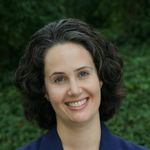BU Sociologists Participate in COSSA 2024 Social Science Advocacy Day
 On April 9, BU sociology PhD candidate Meghann Lucy (GRS ’24) and associate professor of sociology and CISS affiliate Heather Schoenfeld participated in Social Science Advocacy Day in Washington, DC, hosted by COSSA (Consortium of Social Science Organizations).
On April 9, BU sociology PhD candidate Meghann Lucy (GRS ’24) and associate professor of sociology and CISS affiliate Heather Schoenfeld participated in Social Science Advocacy Day in Washington, DC, hosted by COSSA (Consortium of Social Science Organizations).
Social Science Advocacy Day is an annual event bringing together social and behavioral scientists and science advocates from across the U.S. to engage with policymakers in Congress about issues important to social science, such as federal funding. Advocacy Day participants held a series of in-person meetings with House and Senate offices on Capitol Hill. Through these meetings, participants discussed their research and shared reasons why federal government support for social and behavioral science research is so critical. More than 60 representatives attended the event. Boston University is one of the event’s co-sponsors.
The BU team visited with congressional staff in the offices of Senators Ed Markey (D-MA) and Elizabeth Warren (D-MA), and Representatives Ayanna Pressley (D-MA) and Jake Auchincloss (D-MA). At these meetings, the BU team shared findings from their own and their CISS colleagues’ research—focusing on topics that are most relevant to the congressperson’s or congressional aide’s main policy interests.
 For example, Meghann Lucy shared results from the research she carried out for her dissertation. Her research examines the management of mental illness, namely hoarding, within Boston neighborhoods and its housing consequences. These findings were especially compelling to the office of Senator Markey, who has interests in mental healthcare, supporting elder adults in the community, and housing stability. Senator Markey recently introduced the Housing (ACCESS) Act, designed to facilitate access to evidence-based supportive housing.
For example, Meghann Lucy shared results from the research she carried out for her dissertation. Her research examines the management of mental illness, namely hoarding, within Boston neighborhoods and its housing consequences. These findings were especially compelling to the office of Senator Markey, who has interests in mental healthcare, supporting elder adults in the community, and housing stability. Senator Markey recently introduced the Housing (ACCESS) Act, designed to facilitate access to evidence-based supportive housing.
 Heather Schoenfeld spoke with each office about the federal government’s vital role in collecting data from states, counties and cities on their criminal legal systems. “Researchers rely on Bureau of Justice Statistics to have accurate and up-to-date data,” said Schoenfeld “but with current funding levels the Bureau publishes data a year after it is needed.”
Heather Schoenfeld spoke with each office about the federal government’s vital role in collecting data from states, counties and cities on their criminal legal systems. “Researchers rely on Bureau of Justice Statistics to have accurate and up-to-date data,” said Schoenfeld “but with current funding levels the Bureau publishes data a year after it is needed.”
Lucy, who will receive her PhD in sociology at BU this spring and will be starting as an assistant professor of sociology and criminal justice at Truman State University this fall, found the day very rewarding. “Advocacy Day offered such a wonderful opportunity to bridge the gap between the research we do in the academy and policy creation in D.C. Not only is federal funding essential for our ability to conduct meaningful research, but much of the research social scientists produce has policy implications. It was great to be able to learn more about the topics our representatives care about and offer social science research and researchers as resources to building evidence-based policy responses.”
BU faculty in the social sciences who would like to attend a future COSSA Advocacy Day or nominate a student participant should contact Deborah Carr (carrds@bu.edu).

Participants at the 2024 COSSA Social Science Advocacy Day in Washington, D.C.